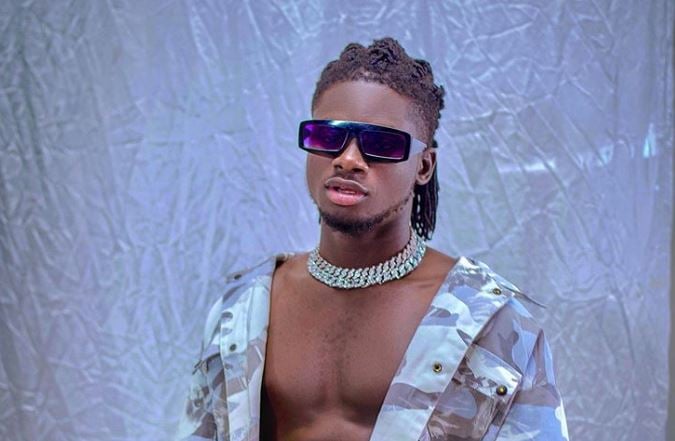Ghanaian highlife artist Kuami Eugene has been vocal about the backlash he continues to face for his participation in Sarkodie’s controversial 2020 single “Happy Day,” which has been interpreted by many as a political endorsement of the New Patriotic Party (NPP) and President Akufo-Addo’s re-election campaign. During a recent interview on Hitz FM, Kuami Eugene candidly discussed the ongoing criticism he encounters despite the song’s release being four years ago. He emphasized that he is still haunted by the song’s association with political sentiments, stating, “I am still suffering for that [feature].” The fact that he was chosen to contribute to a track that many view as politically charged has left him in a difficult position, recounting that he now feels the need to constantly clarify his stance regarding the song.
Kuami Eugene expressed his frustration over the misunderstandings that stem from “Happy Day,” explaining that the initial conversations with Sarkodie did not suggest any political leanings. His role in the song primarily involved contributing to the chorus after being inspired by Sarkodie’s verses. However, the trajectory of the song shifted when it was subsequently interpreted through a political lens, leading to widespread criticism. Eugene’s remarks indicate a sense of disappointment and confusion as he grapples with the implications of the song, particularly since it was never intended as a political statement on his part.
The controversy surrounding “Happy Day” is particularly notable in the context of Ghana’s highly polarized political environment. Released just ahead of the 2020 general elections, the song drew attention for its lyrics that many listeners believed aligned with the ruling government’s policies, specifically praising the Free Senior High School initiative. This initiative has been a hallmark of Akufo-Addo’s administration and provided fertile ground for interpretation in favor of the NPP, which inadvertently led to both Sarkodie and Kuami Eugene becoming targets for criticism. The association of the song with politics has caused an ongoing public relations struggle for Eugene, who continues to defend his creative contributions.
Compounding his challenges is the frequent public inquiry regarding his political beliefs and loyalties, as expressed in the sarcastic comments he receives questioning his lack of support for the opposition. One such remark referenced his background in relation to a public facility, with people asking, “you go sleep for UGMC, you no know say ebe Mahama build am,” implying that he should change his musical inclinations to reflect support for the past administration. This ongoing scrutiny serves as a reminder of how artists can be perceived through a political lens, regardless of their artistic intentions or personal beliefs.
In discussing the impact of “Happy Day,” Kuami Eugene also shed light on the broader implications of political discussions infiltrating the music industry. He acknowledged that artists are often thrust into situations where their work and public image can be manipulated to serve various narratives. As a result, musicians like Eugene find themselves needing to navigate a complex landscape where their art can be misinterpreted and exploited for political gain. This phenomenon emphasizes the power music holds in shaping public perception and the responsibilities artists face in the age of rapid information dissemination.
Ultimately, Kuami Eugene’s situation serves as a cautionary tale for other musicians in Ghana and beyond about the potential ramifications of their collaborations and the political climate surrounding their work. While he strives to clarify his role and intent in “Happy Day,” the enduring backlash he faces exemplifies the challenges artists encounter when their artistic expressions intersect with the world of politics. As he continues to manage the fallout from this experience, Eugene’s story highlights the need for artists to remain vigilant about the messages they convey through their music and the possible interpretations that may arise from their collaborations.














